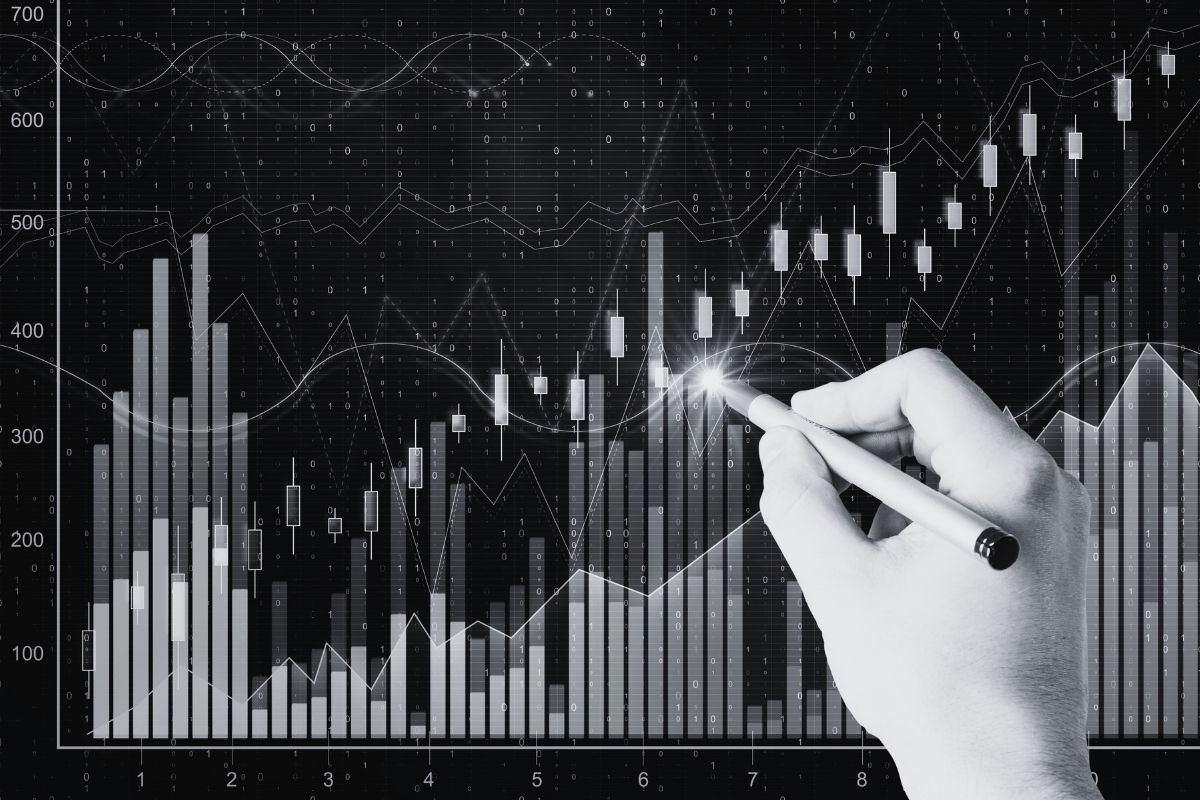Nichts verpassen & anmelden:
Written by AI
The Role of Big Data in Retail: How Retail Tech Is Changing Customer Dialogue!
In today's digital era, Big Data fundamentally changes how businesses interact with each other, especially in retail. Retail Tech, which refers to technological solutions in retail, utilizes large amounts of data to optimize customer dialogue and enhance customer satisfaction. In this article, we dive deep into the world of Big Data and highlight its significance as well as the resulting changes in retail.
Understanding Big Data and Its Importance in Retail
Big Data refers to huge, complex datasets that are difficult to capture, store, and analyze using traditional database management tools. In retail, the ability to utilize this data is crucial for gaining competitive advantages.
Definition and Function of Big Data
Big Data encompasses data from various sources, including social networks, transaction data, website interactions, and customer feedback. This data is collected, aggregated, and analyzed to gain valuable insights that support business decisions.
The function of Big Data in retail lies in recognizing patterns, predicting trends, and understanding purchasing behavior better. This allows retailers to adapt their strategies and develop targeted marketing campaigns.
Why Is Big Data Important for Retail?
The significance of Big Data in retail cannot be overstated. By analyzing large amounts of data, companies can make more informed decisions that enhance their efficiency and profitability.
Furthermore, Big Data enables a deeper connection with customers. Retailers can create personalized offers tailored precisely to the needs and preferences of their customers, ultimately leading to higher customer satisfaction.
Another critical aspect of Big Data in retail is the capability for predictive analytics. Retailers can use historical sales data to forecast future demand and optimize their inventory levels accordingly. This not only reduces the costs of overstocking but also ensures that popular products are always available, further enhancing the customer experience.
Additionally, Big Data plays a central role in improving the supply chain. By analyzing data from various stages of the supply chain, retailers can identify bottlenecks and optimize processes. These efficiency gains not only lead to cost reductions but also provide a faster response capability to market changes, which is vital for success in the dynamic retail environment.
The Impact of Big Data on Customer Dialogue
The way customers communicate with retailers has significantly changed through the use of Big Data. Companies are able to respond quickly to customer inquiries and provide relevant information.
Personalization Through Big Data
Personalization is one of the most prominent impacts of Big Data in retail. By analyzing customer data, retailers can provide targeted product recommendations and create tailored offers that align with individual customer preferences.
These personalized interactions not only increase the likelihood of a purchase but also strengthen customer loyalty. When customers feel that their desires are acknowledged, they are more likely to become loyal buyers.
Another aspect of personalization is the ability to optimize the shopping experience across various channels. Today, customers expect a seamless experience, whether in a physical store, online, or through mobile apps. Big Data enables retailers to integrate these various touchpoints and provide a consistent, personalized experience that meets modern consumers' expectations.
Improving Customer Satisfaction Through Data Analysis
An analysis of customer data allows retailers to better understand their customers' needs and respond to their concerns more quickly. By gaining insights into past purchases and interactions, retailers can offer proactive solutions.
This responsiveness leads to stronger customer loyalty and higher satisfaction as consumers feel valued and heard.
Additionally, analyzing feedback and reviews can identify trends and issues that may not be immediately obvious. Retailers can use this information to continuously improve their products and services, thus further enhancing customer satisfaction. The ability to respond to customer feedback in real-time is a crucial advantage in the highly competitive retail environment, where consumer expectations are constantly rising.
The Role of Retail Tech in Data Processing
Retail Tech plays a pivotal role in processing and analyzing Big Data. Through innovative technologies, retailers can efficiently and effectively utilize large amounts of data.
How Retail Tech Facilitates Data Analysis
Modern technologies such as cloud computing, machine learning, and data visualization tools help retailers manage the complexity of Big Data. These technologies enable faster analysis and provide deeper insights into customer behavior.
Additionally, data analysts help extract patterns and trends from large datasets, which is essential for making informed business decisions.
The Integration of Retail Tech into Retail
The integration of Retail Tech is not just a technical challenge but also a strategic necessity. Retailers must ensure that their technical systems are seamlessly connected and enable effective information exchange.
Through close networking, retailers can capture and analyze customer interactions in real-time. This means faster response times and the ability to make timely decisions that optimize business operations.
Another important aspect of Retail Tech is the personalization of the shopping experience. By analyzing customer data, retailers can create tailored offers and recommendations based on individual customer preferences and purchasing behavior. These personalized approaches not only promote customer satisfaction but also foster customer loyalty as consumers feel valued and understood.
Moreover, automation is playing an increasingly significant role in Retail Tech. Automated systems can take over routine tasks, giving employees more time for strategic activities. This leads to a more efficient use of resources and allows retailers to focus on innovations and improving the customer experience.
The Challenges and Solutions of Big Data in Retail
Despite the many advantages of Big Data, retail also faces a number of challenges. Data privacy and technical hurdles are the primary issues.
Data Privacy and Ethical Concerns
The collection and processing of customer data raise important data privacy questions. Retailers must ensure that they handle their customers' data responsibly and adhere to legal requirements.
Transparency in data handling and providing clear privacy policies are crucial for gaining and maintaining customer trust. Additionally, it is important for retailers to regularly train their employees to raise awareness about data privacy and ethical issues. An informed workforce can help minimize potential risks and ensure compliance with all legal requirements. Establishing a data privacy-friendly corporate culture is thus a central aspect of long-term success.
Technical Challenges and Their Solutions
The technical integration and analysis of Big Data can be challenging. One of the key aspects is the need to implement powerful systems and software solutions capable of processing large amounts of data.
A suitable development approach could involve collaborating with specialized technology providers who focus on Retail Tech and Big Data analytics. These partnerships help retailers overcome technological barriers and develop the necessary skills. Furthermore, training employees in dealing with new technologies is of great importance. Through targeted workshops and training sessions, retailers can ensure that their teams can effectively utilize the new systems. Another potential solution could be implementing cloud-based solutions that enable flexible and scalable data processing, making it easier for retailers to analyze and utilize their data in real-time.
The Future of Big Data and Retail Tech in Retail
The future of retail will be heavily influenced by advancements in Big Data and Retail Tech. A constant change is underway, and retailers must remain agile to stay competitive.
Forecasts and Trends for the Future
We are observing some key trends that will shape the future of retail. The use of AI and automation will continue to increase, further enhancing the efficiency of data processing and personalized approaches.
Additionally, the ability to predict consumer behavior through improved data analytics will be crucial for optimizing the shopping experience and strengthening customer loyalty.
The Role of Artificial Intelligence and Machine Learning
Artificial intelligence and machine learning are two key technologies capable of processing Big Data in ways that were traditionally not possible. They allow retailers to dynamically learn from vast amounts of data and adapt to changing customer needs.
These technologies will also drive the automation of customer service and final decisions based on real-time data, revolutionizing the retail sector.
Another important aspect is the integration of omnichannel strategies that allow retailers to create seamless shopping experiences across different platforms. Today, customers expect consistent service both online and in-store. Utilizing Big Data helps meet these expectations by providing valuable insights into customer behavior and preferences.
Furthermore, the analysis of social media and online reviews will become increasingly important for detecting trends early and responding quickly to changes in customer behavior. Retailers who can effectively utilize this data not only optimize their marketing strategies but also adjust their product offerings to better meet their target audience's needs.
In summary, Big Data and Retail Tech are leading to a fundamental transformation in retail. As retailers leverage the capabilities of these technologies, they will be able to gain deeper insights into customer behavior and transform customer dialogue in the long term.








